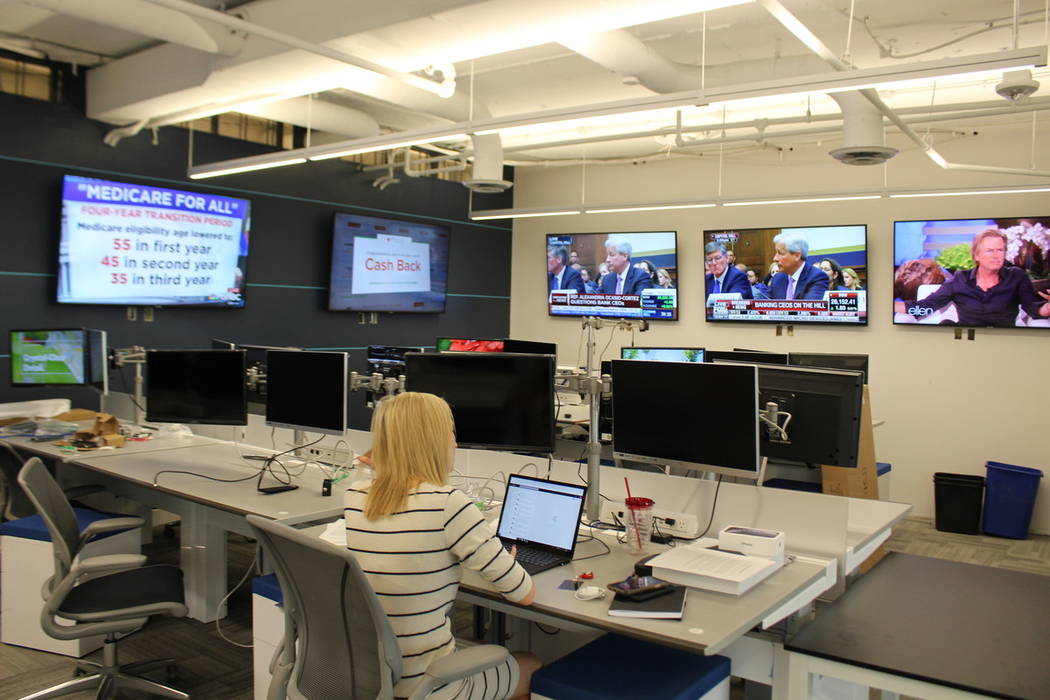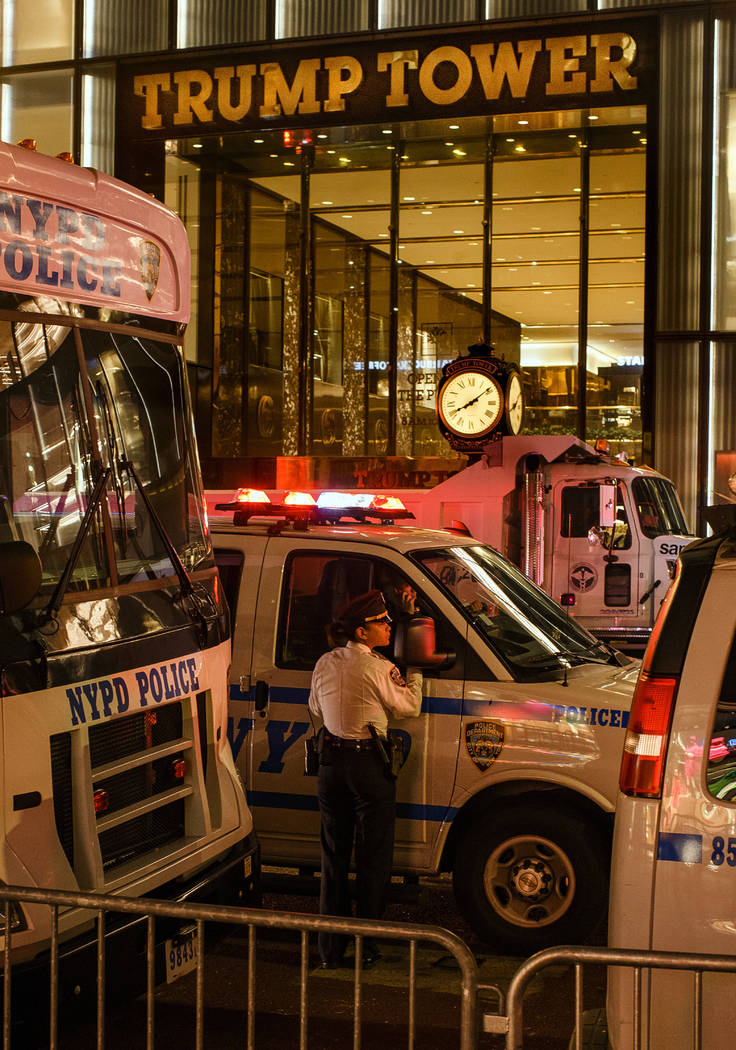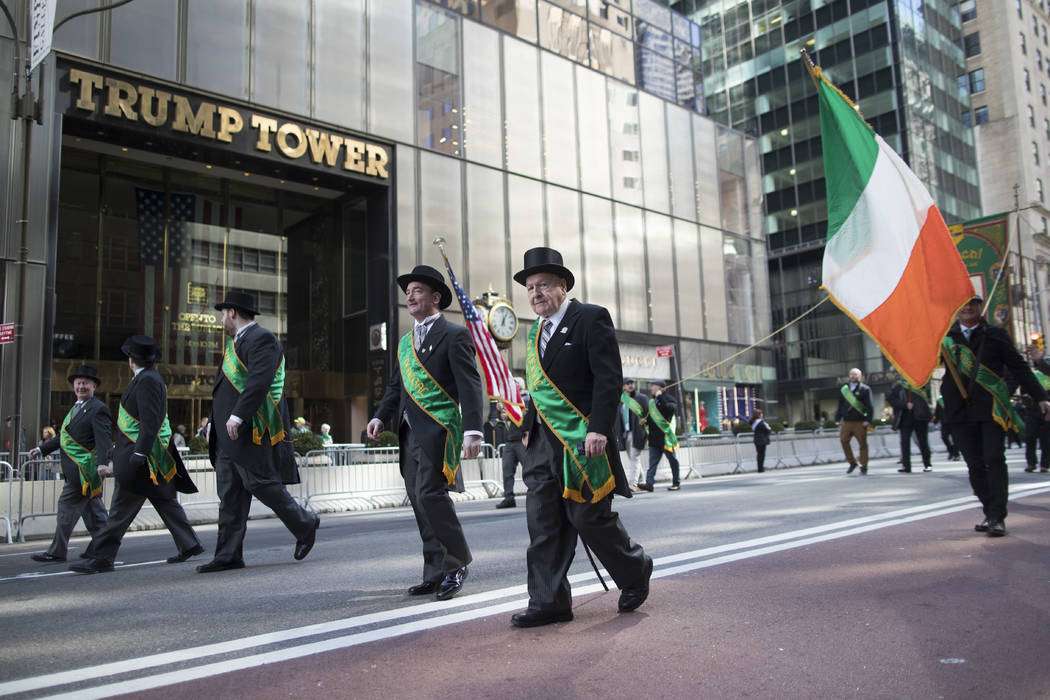Trump campaign transcends 2016 chaos
ARLINGTON, Va. — If Donald Trump’s 2016 presidential campaign was a lean, ad hoc operation that burned through three unlikely campaign managers — and it was — his re-election campaign shows how victory can transform a chaotic organization into a low-drama machine run by now-seasoned hands.
“Everything I’ve heard suggests that they’re very well prepared to do well in 2020 and the organizational elements are far superior to what they were the last time around,” said Lanhee J. Chen, a Hoover Institution research fellow and policy director of Mitt Romney’s 2012 campaign. “They’re doing everything they need to do to be successful.”
Team Trump has more than one headquarters.
Officially, Trump HQ remains on New York’s Fifth Avenue in Trump Tower. But its national organization is run from a building in Rosslyn, Virginia, inside the “swamp” much maligned by Trump, with enviable views of Washington’s hallowed national monuments.
Top members of the campaign’s communications team sat down recently with the Review-Journal to lay out what they see as a sure path to victory.
Communications Director Tim Murtaugh, a veteran GOP operative, looked ahead to 2020 as he predicted that any Democrat who survives a contentious primary against numerous rivals will emerge from the Democratic convention in Milwaukee “beat up, broke” and reliant on a “DNC that is in debt.”
Numbers also favor the president. There are already 18 announced Democratic candidates, more than the 17 people who made up the final Republican field of 2016.
But Democratic pollster Paul Maslin noted that Trump won that crowded race and then went on to beat Democrat Hillary Clinton.
“There’s no empirical evidence that a big field means it will work out badly,” he said. “Let’s see. We don’t know yet.”
As for the DNC’s financial situation, Maslin countered that when this election gets hot, “both sides are going to have plenty of money.”
Trump 2020 campaign manager Brad Parscale, the 6-foot-8-inch bearded data guru of the 2016 campaign, recently told Fox News host Martha McCallum that he expects the campaign to raise nearly $1 billion.
In 2016, Democrat Hillary Clinton raised $623 million, almost twice the $335 million raised by Trump.
Running against socialism
The second strike for the Democratic nominee, according to Murtaugh, will be policies such as “Medicare for All,” which he dubs “a single-payer government takeover of health care,” and the Green New Deal, which calls for steep reductions in greenhouse gases.
“At some point over the years, when we decried the policies of the left as socialist, we were taking liberties,” Chen said. “We’re not taking liberties now. We’re characterizing them accurately.”
Murtaugh also described Democratic candidates’ position on border security as “an open-border immigration policy.”
“All of these things will be required pillars of their platform in order to become the nominee,” he said. “It’s just a huge advantage. That’s the way we see this period between now and the convention. So we’re running a general election campaign now.”
Organization is key.
“We will have a campaign staff befitting the re-election effort of an incumbent president,” Murtaugh said. “Our ground game will be unprecedented in scope, where we have a target of as many as 2 million recruited and trained volunteers.”
Identifying the voters
“And that’s important because the political team has identified 23 (million) to 26 million voters who will decide the election,” Murtaugh continued. “This isn’t some number that we’ve determined simply by looking at the number of votes it will take to win certain states. Rather, they are actual people, actual voters, the ones we think will decide the election in key states. And we will communicate with them directly and repeatedly during the campaign.”
That sets up a ratio of one volunteer per 13 targeted voters. The key to victory will be turning out low-propensity Republican voters and wooing swing voters in key states.
“I will take them at their word and also accept the fact that I think we have to be honest and say that in some ways, they got out in front of us in this entire area,” Maslin said of the Trump campaign’s 2016 data-driven focus. “And we’ve got to play catch-up hard. We had plenty of analytic people, too, and data people, too. But they came to the wrong conclusion in 2016.”
“All the organization in the world doesn’t matter if the product’s no good,” Maslin added. “And if they’re selling a 42 percent job approval rating, they’re going to have problems.”
The most recent FiveThirtyEight poll found Trump’s job approval rating at 41.9 percent, a ballpark number for over a year.
Democratic momentum
John Santos, the western region press secretary for the DNC, pointed to the GOP’s loss of the House of Representatives in November’s midterm elections when asked for a comment.
“Last year, Republicans lost control of the House in large part because of their efforts to take health care away from people and to enrich people who are already billionaires. Trump and the Republicans will continue to lose with this strategy,” Santos said.
The midterms were especially harsh for the Nevada GOP, as Republican incumbent Sen. Dean Heller lost to Democratic challenger Jacky Rosen and Democrats seized every statewide office from Republicans except for secretary of state.
Trump lost Nevada to Clinton by 2 percentage points. So the question is does Team Trump think he can win Nevada in 2020.
“At this point, nothing tells me that we can’t win Nevada,” senior political adviser Bill Stepien, who worked for the 2016 campaign and in the Trump White House, told the Review-Journal.
Contact Debra J. Saunders at dsaunders@reviewjournal.com or 202-662-7391. Follow @DebraJSaunders on Twitter.
Trump campaign raises $30M in first quarter
WASHINGTON — President Donald Trump's re-election campaign has reported that it raised more than $30 million in the first quarter of 2019, edging out his top two Democratic rivals combined.
The haul brings the campaign's cash on hand to $40.8 million, an unprecedented war chest for an incumbent president this early in a campaign.
The Trump campaign said nearly 99 percent of its donations were of $200 or less, with an average donation of $34.26.
— The Associated Press

























